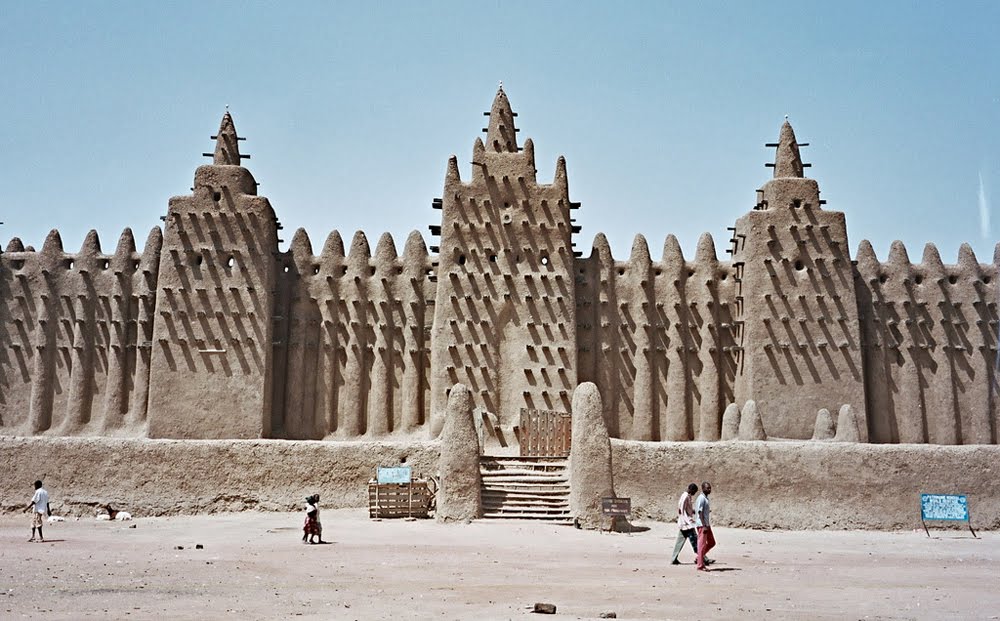Travel Tips
Lorem ipsum dolor sit amet, consectetur adipiscing elit.
Search

Muslims make up 25% of Ghana's population, predominantly in the northern regions, with Islam introduced through trade in the 8th century. Despite contributing to Ghana's independence and cultural diversity, the Muslim minority faces political marginalization and economic disparities. Northern regions lag in development compared to the Christian-dominated south, with limited access to Islamic education. While Muslim holidays are nationally recognized, challenges remain in balancing faith with Ghana's socio-political landscape.
Ghana is one of the most populous countries in Africa, with 25% of its population being Muslims. Muslims are concentrated mainly in the country's northern regions, whereas Christians dominate the central and southern areas. Islam reached North Africa by the 7th century, following the triumph of Uqbah Ibn Nafi. However, Islam began to spread in the 8th century through Muslim traders and visitors. During this period, Muslim Berbers (a specialized group) were at junctions of almost all trade routes from eastern Sudan to the Mediterranean. Following the conversations with Mandé (a specialized group) who were Berber's trade partners, Islam began to spread from north Ghana to several parts of the country. When the Mandé trade culture caused the dissemination of Islam, Mandé Sufis, especially the Qadris, played an undeniable role in the Islamization of the region. The arrival of "Hausa” (a leader of Tijani Tariqah) and his companions in the northern regions of Ghana had a major impact on Islamic culture.
Most of the Muslim population lives in the northern regions. But it doesn’t mean Muslims are absent in southern regions. Muslims in the southern region of Ghana are of African origin and were brought here during British colonial rule in the late 19th century. The Kotokoli, Champa, and Basil tribes from the Benin, Hausa, Fulani, and Yoruba peoples of Nigeria, the Moshi of Niger, Burkina Faso, and Mali, among other ethnic groups, are also indigenous to Ghana.
In the mid-15th century, the region was found home to much-needed mineral resources, became a major above the slave trade from Africa to the west, and was known as the " Gold Coast “. Although virtually every European power had an interest in this region. But the British who had the most advanced navy at the time invaded Ghana in 1874 and began a long period of colonization. Native resistance against British rule turned violent, leading to widespread unrest in the country. After World War 1, demands for Independence grew stronger with the support of the Muslim minority. Kwame Nkrumah led the country's struggle for independence. As he came into power as a national hero supported by the entire community, Nkrumah's attitude towards the Muslims began to change.
After the independence of "Gold Coast" in 1957, the country was renamed "Ghana" with popular support and agitation against British rule. Not indifferent to the demands of Muslims, Nkrumah formed a puppet organization "Muslim Youth Congress" comprising a small group of Muslims loyal to him. This group was taken as an intermediary for the Muslim community, and Muslims were politically marginalized from other groups.
As the first sub-Saharan and African country to gain Independence from colonial rule, Ghana inspired many other countries in Africa to fight the struggles towards independence. Like other African countries, it too fell into the trap of political rivalries that plunged the country into instability. The constitution adopted in 1992 came too late to prevent coups, civil strikes, and economic crises that lasted until 1981. In this complex political process, the Muslim minority has always been an active participant. An educational and cultural organization, "The Gold Coast Muslim Union", established in 1938 later became a political party and was renamed "The Muslim Union Party". Today Muslims, who remain a minority in the country do not receive the value they deserve in the country’s politics. However, there was a period when 10 Muslim ministers were appointed during the same government’s tenure.
Muslim holidays are official holidays in Ghana. There is also the office of the national chief Imam of Ghanaian Muslims, who is held responsible for representing the country's Muslims as a religious community. The institution is responsible for the religious affairs of the Muslim minority. Dealing with the political issues is generally the responsibility of representatives to the parliament.
In addition to political instability, severe economic inequalities also exist in the country. Areas populated by Muslims are generally poor. Most of the Southern regions, where large trade industries are deemed flourishing, are dominated by Christians. The northern regions, which are heavily populated by Muslims, have small-scale industries of a rural and agricultural nature. Lack of education poses the most important problem faced by Muslims in the country. At present, more than 600 Islamic institutions provide primary education. Secondary education is provided through more than 260 institutions. At the high school level, the involvement of Muslim educational institutions is somehow scarce. There are about 10 schools in the country that provide education according to Islamic sensibilities. Thousands of Muslim youth who cannot attend one of these High Schools are educated in schools that employ a Christian curriculum.
Ghana, one of the countries where missionary work is most widespread, is used to witness many conversions to Christianity. Many educated families tend to send their children to Christian colleges which provide attractive opportunities and high-quality education. Muslims are often denied simple access to the high-end facilities and high-quality provisions offered by these institutions. All sections of the country have their educational institutions. Quranic schools built around mosques seem to be the most practical solution. In addition to hundreds of mosques and Quranic schools across the country, courses on Islamic education also exist in large urban centers.
Comments